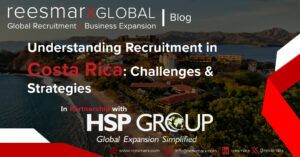Some studies have reported that the estimated cost of recruiting and training a new employee averaged about $4,000 in North America. Every aspect of the recruiting and hiring process from the initial skill assessment to advertising, interviewing and hiring an employee is time a consuming and frequently expensive process. The return on investment for a professional hire is simple; you will have found the ideal, experienced candidate for the role. A candidate who you hope will remain with the organization for a period of time.
In the last twenty years, what we know about the science of human resource management has changed dramatically. In addition, the way that employees perceive their career opportunities and goals have changed culturally around the world. While older generations aged fifty-five years and up were raised in a culture of “one employer for life” where possible, younger generations in their twenties and thirties have an entirely different perspective. The traditional employee viewed the change of a career and employer as a set-back or negative experience whereas today, young professionals embrace job change as a means to rapidly accelerate both salary and industry experience.
Explaining Short-Term Employment During an Interview
A recruiter is a seasoned human resource professional, and if you are engaged in an interview, inevitably the recruiter will ask you some questions regarding a non-traditional work history. Learning how to answer honestly and present the advantages of your career strategy will go a long way to making a favorable impression during your interview. The recruiter will want to know your strategy, and some other key indicators that differentiate you as a talented and ambitious professional, versus a candidate who may have a pattern of interpersonal or professional conflicts.
If you have determined that the best way to gain more experience in your field was through a diversity of roles within numerous organizations, share that with your interviewer. The rationale for your transient employer history should show a progressive pattern of professional development as well. Did your titles and responsibilities scale up with your work experience? Were you able to acquire different types of skills or training that benefited your career by moving to another organization? When organizing your C.V., provide a sound rationalization of your strategic career path, and the progression you experienced as a result of experiencing new employers.
Referrals are also an excellent way to differentiate diverse work experience from negative ‘job jumping’ patterns. If you have held multiple roles and departed on good terms, with excellent recommendations from managers, supervisors and co-workers, it helps to legitimize the fact that the employee is following a responsible, assertive career plan. One of the most frequent questions a recruiter will ask former managers is “Would you hire them back?” If the answer is yes, the recruiter acknowledges a talented, traditionally high performer who is following a rather non-traditional career track.
Avoid being haphazard with your explanation. While personal conflicts can be a legitimate reason to seek a new employer, a pattern of conflict is a warning sign to recruiters. If you have left multiple positions because of personal conflicts, a seasoned HR professional will anticipate a high probability of future conflicts. The ability to resolve an interpersonal issue professionally while continuing to work productively as a member of the team is a highly coveted skill that all employers value. The ability to problem solve and communicate is essential for a career professional; employers are not willing to invest time and resources in the placement or training of staff who are likely to conflict with others.
Do you have anything positive to say about the roles you left behind? Honesty again is important. If you disliked a previous job, find something constructive to say about the employer. If you stayed for a period of time, there were things that you liked and disliked about the organization or your responsibilities. Present a balanced perspective on your career choices and reflect on the learning experience and professional skills acquired; it is an indicative of an employee who values lifelong learning, and one that is not afraid to try new things or adopt innovative means to progress their career.
For employers who frown upon a more adverse employment history, consider that someone who is a figurative star performer will require less training than other candidates. While the top performer may not stay for five or ten years, they are likely to be an over-achiever within the time that they are with you. And when cultural considerations are a fit, many top talents do stay, after having experienced a variety of employers before deciding to commit for a longer term. When vetted by a human resource professional, these candidates (particularly in technology or creative sectors) represent a tremendous opportunity for your business.






